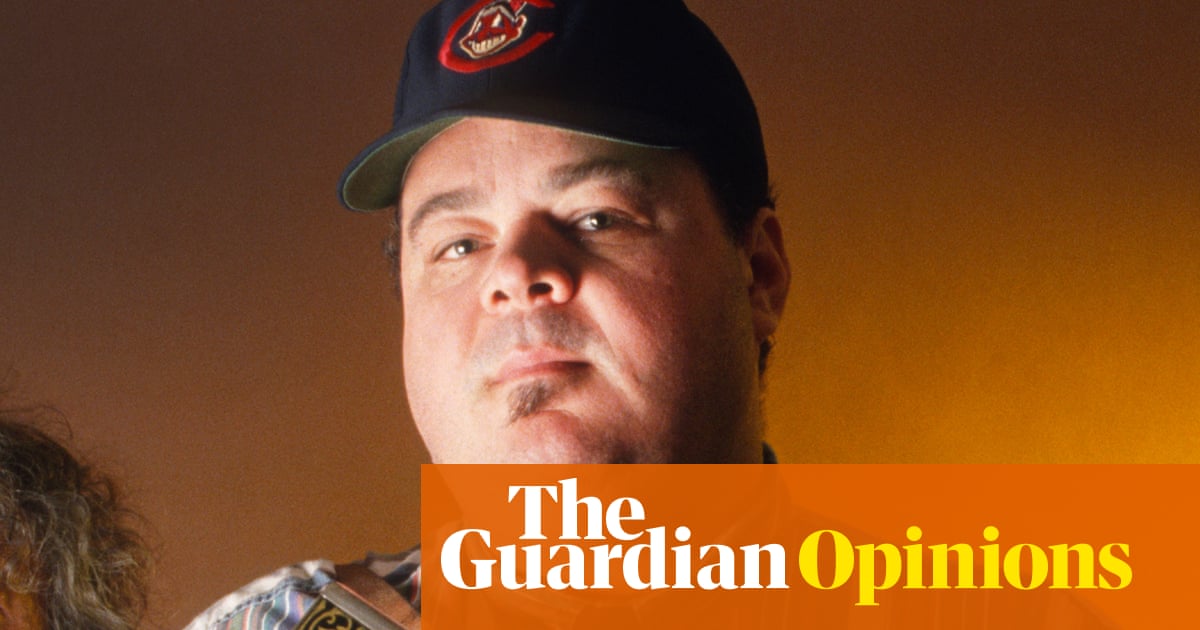Rock journalism in the 1970s was never short on hyperbole, but when Jon Landau described seeing the young Bruce Springsteen as “rock’n’roll future” – a line which subsequently became part of Springsteen mythology – the singer felt so “suffocated” by the quote he tried to stop it being used and even reputedly tore down his own posters. However, some years later, when a similarly excitable Rolling Stone magazine declared that “modern rock’n’roll reached its peak in 1978” with Pere Ubu’s debut album The Modern Dance, the band’s singer David Thomas took it as a challenge. “I wasn’t going to stop making music in 1978 just because everybody said ‘they’ve ended rock’n’roll’,” he insisted later. “I had – I have – other things to say.”
Thus, by the time of his death this week aged 71, he’d made a further 18 studio albums and dozens more live albums with Pere Ubu, plus many others as a solo artist with a myriad of backing bands. He performed in theatrical productions and delivered lectures. Another LP was apparently almost finished, along with an autobiography. He carried on performing even aftertechnically dying twiceand subsequently requiring kidney dialysis and a Zimmer frame. “I’m sort of glad that I can’t jump around any more because I don’t have to worry about falling into the drums,” he gleefully insisted. “All my concentration goes into singing.” Absurdly, given his gargantuan critical reputation, he once attributed his almost pathological desire to keep working to a feeling that “artistically, my entire life is failure. I want to get it right”.
In fact, had this son of a literary professor stopped at The Modern Dance, he would have already sealed his legacy as one of rock’s great outsider innovator-pioneers. Thomas’s infamously self-destructive first band, Rocket from the Tombs, were only together for a few months in Cleveland, Ohio between 1974 and 1975 yet created a prototype for punk cited as a major influence by Ramones, Devo and the Fall. Then, Pere Ubu’s “avant garage” – a turbulent mix of punk, garage, art rock, jazz, experimental noise and influences ranging from MC5 to Sun Ra – ushered in a no wave/postpunk sound and inspired bands including Joy Division, Gang of Four, Sonic Youth, REM and Pixies. Other fans ranged from Rebus writer Ian Rankin to Beach Boys lyricistVan Dyke Parks, who once introduced Thomas to Brian Wilson with the words: “Meet the other genius”.
On a mission to “challenge the narrative” and “rewrite the rules of musical production”, Pere Ubu’s groundbreaking early albums laid out Thomas’s mission to take rock music into new areas, whether those areas welcomed it or not. A colossus of a man with a yelping, howling voice, in his earlier years he would career around the stage, leaving audiences open-mouthed. He put on “Disastodromes” – festivals of noise acts promising “confused, liberating disorder” – and even a rock adaptation of Chaucer’s Canterbury Tales. He was a fearless, vivid, literary lyricist, describing guitars as sounding “like a nuclear destruction”, and visions such as “the stars on fire, the world in flames”, as he insisted that rock could and should be “smart”.
Musicians who worked with him knew they had to be on their mettle. There would be freaky pre-gig monologues, or lyrics they’d hear for the first time when he sang them. Original Ubu keyboardist Allen Ravenstine described “brutal” creative sessions, yet Thomas insisted that the 20 musicians he worked with in Ubu over the years would welcome further work together.
His stature and fierce intellect could certainly make for an intimidating presence, but behind it all were a gleeful, childlike playfulness and thrilled fascination with the absurdities of human life. Once, in Manchester, he started a show with a hilarious monologue in which Bon Jovi and Madonna were reduced to playing Holiday Inns while Pere Ubu had a global No 1. When he mock-cantankerously forbade the audience to clap, they cheered him to the rafters. Although the band spent time on a major label, Thomas was one of the few great artists of his generation who never compromised his art to become popular, declaring: “The only reason I would have liked to have been rich and famous is because I would have spent the money on even more outrageous projects.”
